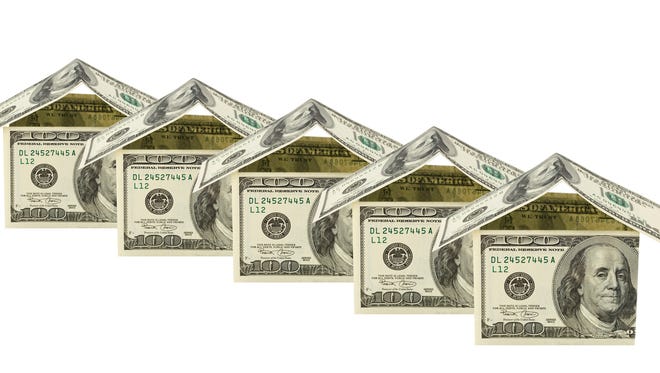Trump, Clinton seem to be leaving our homes (and tax breaks) alone

The presidential race has mostly steered clear of housing.
Sure, some of the candidates, namely Donald Trump, have bemoaned the gradual slide in the nation's homeownership rate since it peaked a dozen years ago. But neither he nor Hillary Clinton has shown much interest in offering new tax proposals affecting homeowners directly.
The existing tax benefits are significant. They include deductions for mortgage interest and property taxes and an ability to exclude from taxes most or all profits from a primary home sale. The candidates have delved into other tax matters. Some of the proposals so far involve issues such as basic tax rates (Trump), surcharges on the rich (Clinton), tax-code simplification (Trump) and changes in the treatment of capital gains (Clinton).
But proposals specific to residential real estate have been missing, and maybe that's a good thing. Today's tax breaks for homeowners appear safe this election season. Here's a summary of what's available, in the unlikely event that homeowner tax policies creep into the limelight this campaign season:
Mortgage interest payments
Most people take out loans to buy homes, and the interest portion of payments is tax-deductible for those who itemize (limits apply if the loan balance exceeds $1 million). Home-equity interest also often is fully or partially deductible, unlike credit card payments. Any points, or charges you paid to secure a mortgage on a primary residence, also might be deductible.
Take a 2-question test to see if you're ready to own a home
Other ongoing expenses
Property or real estate taxes are another deductible expense for homeowners who itemize. Property taxes generally will rise over time, providing a bigger deduction, while interest payments typically decline as a loan is paid off.
Tax-free capital gains
Given that housing usually appreciates over time, the ability to avoid taxes on profits can represent a huge benefit for people staying in their dwellings many years. Singles can avoid taxes on up to $250,000 in profits on the sale of a main or primary residence, and married couples filing jointly can exclude up to $500,000. This tax break can be used more than once, if you move from home to home every several years.
But there are two tests to meet: The first is that you must have owned the home for at least two of the preceding five years. The second is that you must have occupied it for at least two of the past five. More precisely, you need to have lived in the home for a minimum of 24 months, not necessarily as a single block of time. This nuance means that you could have rented out the place for part of that time and still qualify for the tax break. For purposes of this exclusion, the IRS defines your main home as the place "where you spend most of your time."
Even if you can't meet those requirements and a capital gain applies, you probably wouldn't owe tax on the straight profit — the selling price less the purchase cost. That's because you may increase your basis, or reduce the taxable amount, by subtracting the value of improvements made along the way, selling commissions paid and possibly other expenses such as some settlement costs at the time of purchase. Improvements include room additions, new roofs, rewiring, landscaping, new fences, plumbing systems and air conditioning.
Are you shrinking along with the middle class?
If all that's not enough, various exceptions can make a home-sale at least partly non-taxable, assuming you don't meet the two tests. Examples include home sales precipitated by a job move, for health reasons or "unforeseeable" events, such as divorce, unemployment or even the birth of twins.
Add them all up, and the tax benefits for homeowners are impressive. So it's somewhat perplexing why the homeownership rate keeps falling. The reasons likely reflect causes not necessarily related to tax policy, such as stagnant wage growth, heavy student loan debts and delays in forming households.
If the presidential candidates want to reverse the downward home ownership trend, they should propose reforms that directly affect these areas. More homeowner tax breaks probably aren't needed and are tough to justify as federal debt continues to rise.
Reach the reporter at russ.wiles@arizonarepublic.com or 602-444-8616.
